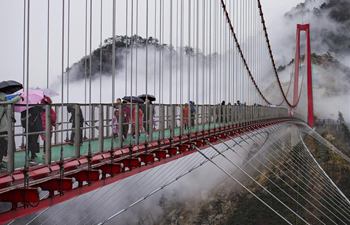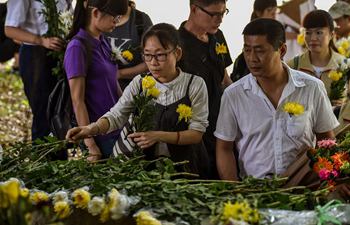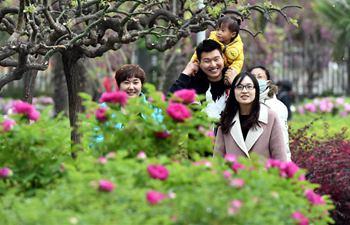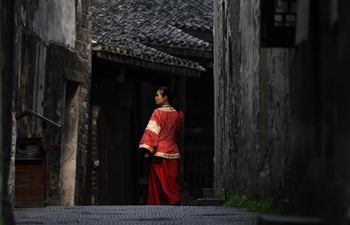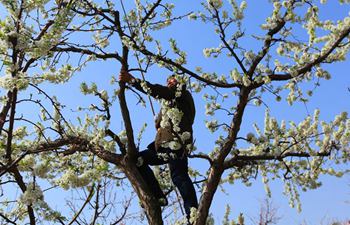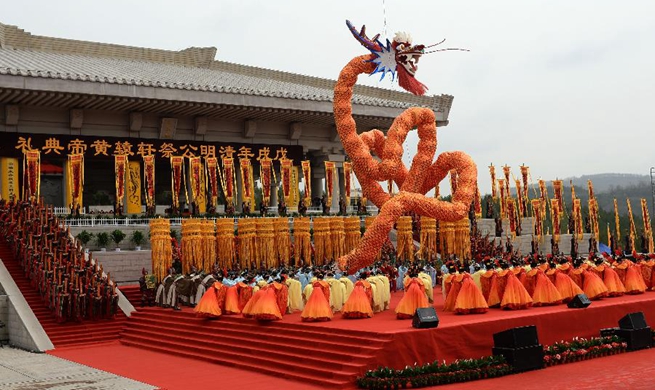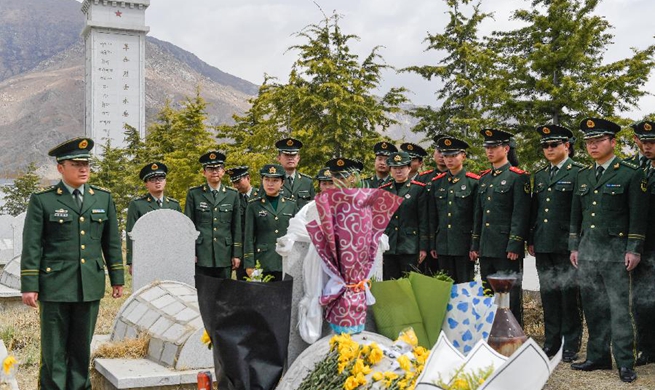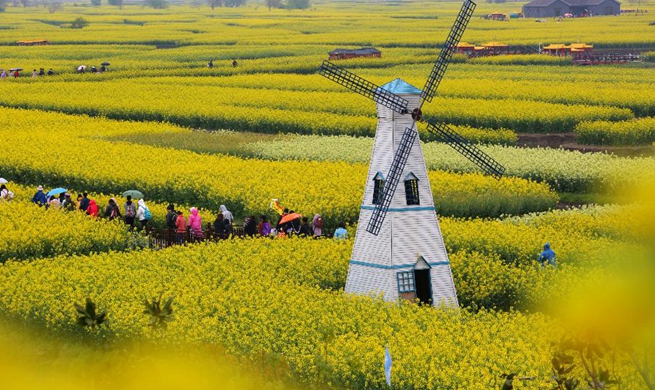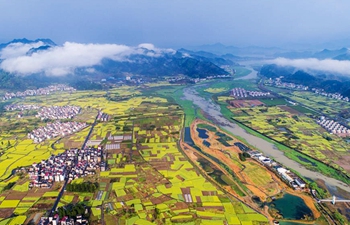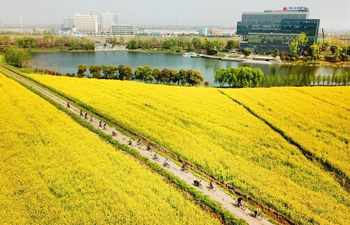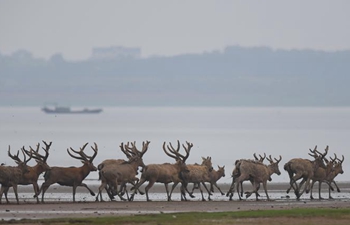CHANGCHUN, April 5 (Xinhua) -- Bringing his eight-year-old son, Wang Wei visited the martyrs' tomb park in Changchun, capital of northeast China's Jilin Province, and placed some flowers in front of a monument.
"We should not forget the warriors who sacrificed their lives for our country," said Wang, a local resident.
"It is not only our relatives who should be remembered, but also the deceased heros," he said, adding he hoped his son would continue to visit every year in the future.
Thursday marks Qingming, Tomb-sweeping Day. It is a time for Chinese people to mourn the dead and worship their ancestors by visiting tombs and making offerings.
While the government has set up a Martyrs' Day on Sept. 30, Chinese people visit graveyards of martyrs to commemorate those who lost their lives for national independence and prosperity at Qingming.
Since retiring from the army, Liu Guoxin swept tombs of 13 martyrs every year near his hometown, Hunchun City.
The 13 were killed in an attack by Japanese troops in 1938. On one of the gravestones is only a surname "Lang."
"He died at the age of less than 20, with his full name unknown," the veteran said while wiping the gravestone.
Liu said he could not bear weeds growing near the tombs, so he decided to come to visit every day, removing weeds, leaves, or snow.
In Beijing, more than 700 people, including veterans, descendants of martyrs and students, attended a commemorative poetry recital on Wednesday at the Museum of the War of Chinese People's Resistance Against Japanese Aggression.
Veteran Zhang Senshui led the participants to mourn deceased soldiers and present flowers. A concert was organized Thursday morning.
Authorities opened a webpage of "commemorating martyrs online" from March 6. As of Wednesday, 90 million netizens had presented virtual flowers at www.wenming.cn, with many of them leaving messages.
"Dear brave warriors, you are the most lovely people,... and the land you shed blood for has been filled with blossoms and trees. We will cherish the hard-earned happy life and better understand the responsibilities and missions shouldered on us," posted a netizen.
While deceased warriors rest in peace in graveyards, Yang Yumei only had a jar of soil.
Yang, 55, is granddaughter of Zhang Qi, the most senior Chinese officer to die in the Battle of Yenangyaung, Myanmar in April 1942. More than 7,000 British soldiers and their families were saved from in the bitterly fought campaign.
His body was blown up when being transported back home, with his belongings scattered.
In 2015, Yang brought back a jar of soil at the battlefield and buried it in Qiyang County, Hunan Province, Zhang's hometown.
Last year, funded by local government and Yang, a monument was erected as well as a gravestone at the site.
"He finally has a place to be mourned by people," Yang said.




